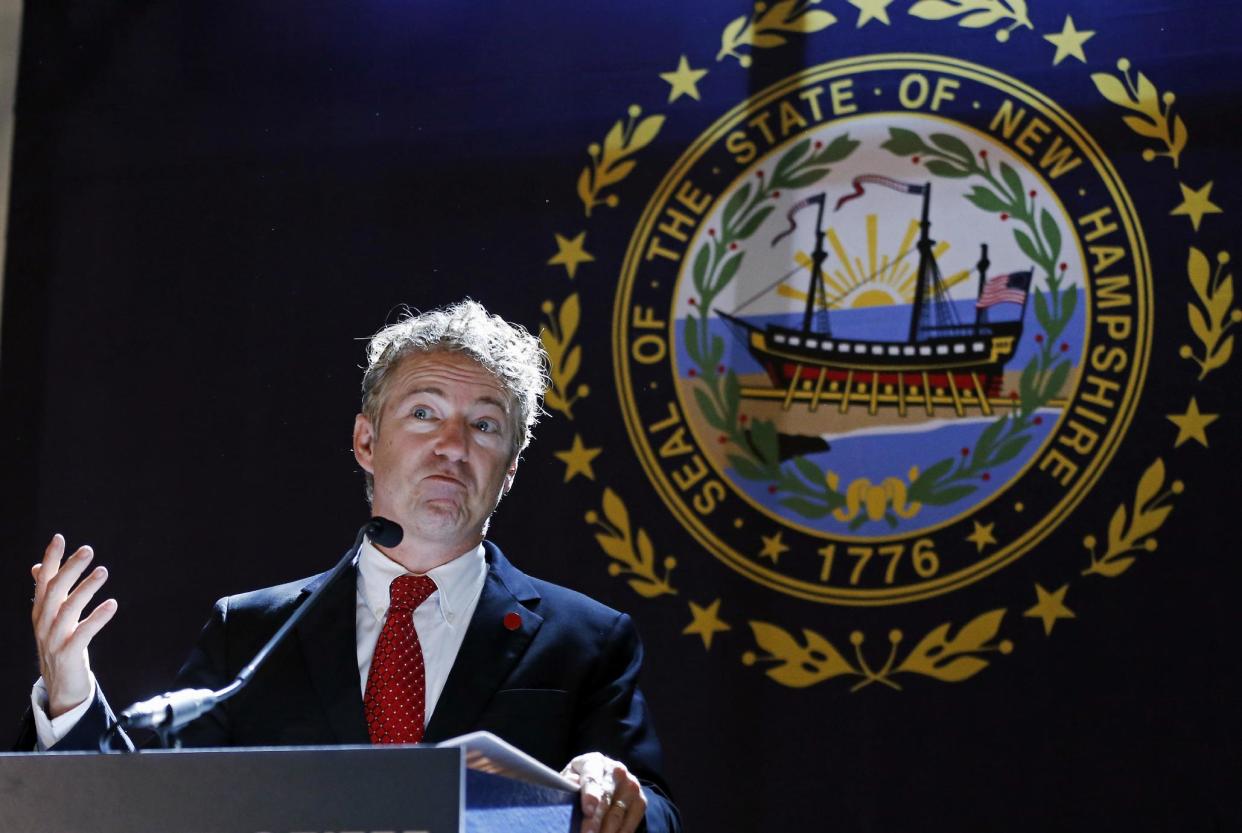Rand Paul still has a thinking-out-loud problem
When the U.S. senator speaks, people listen. He should get used to people taking him literally.

Rand Paul is quickly learning that his words have consequences.
The most recent reminder came after a speech in New Hampshire last Friday, when Kentucky’s junior U.S. senator vowed that if elected president, his first executive order would rescind “all” past orders made by past American presidents.
“I think the first executive order that I would issue would be to repeal all previous executive orders,” Paul said, when a man in the audience asked him about the topic, according to multiple reporters present. “Democracy is messy, but you have to build consensus to pass things. But it’s also in some ways good, because a lot of laws take away your freedom. So it should be hard to pass a law.”
Any rising Republican star with presidential ambitions who promised to wipe out nearly 230 years of executive decision-making would attract attention, and Paul was no exception.
Reporters who followed up with questions about the thinking behind Paul’s promise, however, were told by his staff that he wasn’t serious, and they should not take his words at face value.
"Senator Paul's statement was meant to emphasize this president's overt and unconstitutional executive orders, it was not meant to be taken literally," Paul aide Doug Stafford told The Huffington Post.
Despite his staff pooh-poohing the statement, Paul doubled down on it the next day in a follow-up interview with RealClearPolitics. Paul said he was serious about the idea and said it could be done, although he dismissed it as an “offhand comment.”
“It’s a nice idea,” Paul said. “You would obviously have to look at all of the executive orders to see that there’s not something in there. But the thing is, you could sunset them all and really repeal them all, and then you could start over. And if there are any ones that are good, you could reinstitute things or ask Congress to reinstitute things that need to be done.”
Asked if that meant he was OK with negating such historically significant executive orders as President Lincoln’s Emancipation Proclamation or President Truman’s order desegregating the military, Paul demurred.
“Well, I mean, I think those are good points, and it was an offhand comment, so obviously, I don’t want to repeal the Emancipation Proclamation and things like that,” he said. “Technically, you’d have to look and see exactly what that would mean, but the bottom line is it’s a generalized statement that I think too much is done by executive order, particularly under this president. Too much power has gravitated to the executive.”
This episode suggests that Paul’s staff may be on a steep learning curve as their boss presents the world with a coherent message.
As Paul faces ongoing criticism for past positions, his words in New Hampshire suggest another problem: As he moves closer to a decision to run for president, his words will carry more weight — especially proclamations of what he would do as president.
This is not necessarily a sign that people are out to get him, as many in Paul-world seem to think. The alternative and more generous explanation is that people are taking the prospect of a Paul presidential run seriously and holding the possible candidate to the level of accountability and seriousness that a nation’s chief executive will face.
And though it may not feel like it to the candidate, that's actually a good thing to get used to.
Related Video




